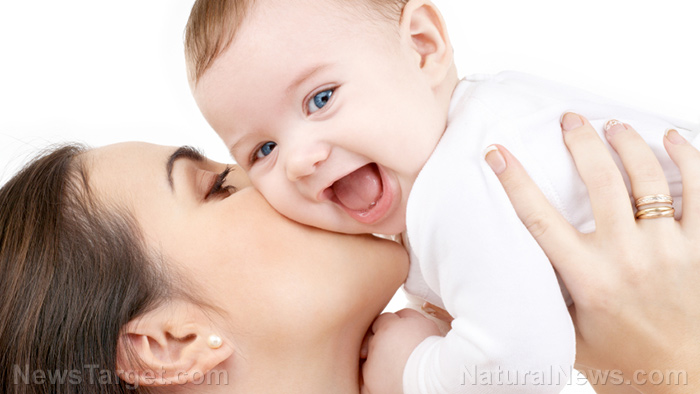Study finds SINGING helps women overcome postnatal depression through expressing emotions
08/25/2018 / By Michelle Simmons

A new study showed that women can recover from postpartum depression by singing with their babies in a group. For the study, a team of researchers from the Centre for Performance Science analyzed the associations of singing and creative workshops, and standard postpartum care on postpartum depression.
In the study, more than 130 mothers were observed by the research team during their first 40 weeks of motherhood. The participants were divided into three groups. One group received the standard postpartum care, the second took creative play workshops, and the last group engaged in 10 weeks of singing workshops. The mothers who were assigned to the singing workshops listened to and learned new songs as well as created songs about motherhood.
The researchers discovered that the recovery of mothers who took singing workshops with symptoms of moderate to severe postpartum depression significantly improved. On the other hand, the speed of recovery of the mothers who took part in creative play workshops were similar to those who received standard-of-care. Past studies suggest that singing allows depressed people to express their emotions and helps them get relaxed.
“Postnatal depression is debilitating for mothers and their families, yet our research indicates that for some women something as accessible as singing with their baby could help to speed up recovery at one of the most vulnerable times of their lives,” explained Rosie Perkins, the principal investigator of the study.
The findings of the study were published in the British Journal of Psychiatry.
What is postpartum depression?
In the U.S., around one in every nine women experience symptoms of postpartum depression, according to a Centers for Disease Control and Prevention (CDC) research. Postpartum depression is depression that happens after giving birth. Unlike “baby blues,” which is a term used to describe the worry, sadness, and tiredness many mothers feel after having a baby, feelings of postpartum depression are more extreme and last longer.
The power of the elements: Discover Colloidal Silver Mouthwash with quality, natural ingredients like Sangre de Drago sap, black walnut hulls, menthol crystals and more. Zero artificial sweeteners, colors or alcohol. Learn more at the Health Ranger Store and help support this news site.
The symptoms of postpartum depression may include crying more frequently than usual, feelings of anger, withdrawing from loved ones, feeling numb or disconnected from your baby, worrying that you will hurt the baby, and feeling guilty about not being a good mom or doubting your ability to take care of the baby. Although postpartum depression cannot be treated on your own, there are things that you can do to speed up your recovery, according to the MayoClinic.org. These include the following:
-
Have a healthy lifestyle – A healthy lifestyle includes being physically active, which can be done by having a walk with your baby; getting enough rest; and eating healthy food and avoiding alcohol.
-
Be realistic – Set realistic expectations and do not pressure yourself to accomplish everything. Do not set your expectations for a perfect household, instead do what you can and leave the rest. Doing this will prevent you from getting disappointed.
-
Make time for yourself – Set some time for yourself like getting dressed and visit a friend or run an errand. Having some time alone with your partner can also help.
-
Do not isolate yourself – As much as possible avoid isolation. This can be done by talking with your partner, family, and friends about how you feel. Asking other mothers about their experiences can also help break the isolation.
-
Get help from others – Try opening up to the people who are close to you and let them know you need help. They can help you babysit, so that you can take a break, sleep, or go out of the house and meet with friends. (Related: Postpartum Depression can be Prevented without Drugs.)
Read more stories on postpartum depression and its effects at Psychiatry.news.
Sources include:
Tagged Under: american psychiatric association, depression, mental, mental health, mind body science, mind-body medicine, natural remedies, Postpartum Depression, psychiatry, research, Singing, therapies, women's health




















